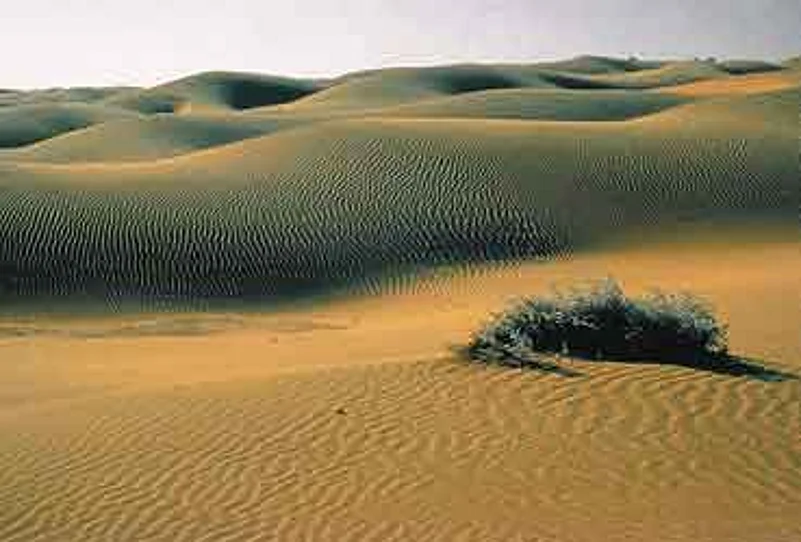
Or take the case of the Great Indian Bustard, another endangered species. Of the 500-odd birds remaining in India, most are found in Rajasthan's Desert National Park. Now, an ongc project to drill for oil and gas in 24.5 hectares of the park is set to permanently distort the habitat of the Bustard, along with the black buck and rare desert cats.
The NBWL, meanwhile, pleads helplessness. A senior official in the wildlife division of the environment and forests ministry puts the blame squarely on the NBWL's predecessor, the Indian Board for Wildlife (IBWL), which was dismantled last year."We can't alter decisions to denotify or divert land IBWL had taken," he says. But what's worse, the NBWL doesn't even seem interested in challenging it.
However, the NBWL did discard a proposal to denotify a section of the famous Rajaji National Park that is shared by Uttar Pradesh and Uttaranchal—to build, of all things, a hospital. More uncertain is the future of the Govind National Park, which shares biodiversity features with the Askot sanctuary. "We have heard that 15 per cent of the Govind National Park is also going to be denotified for construction purposes," claims Sekhsaria.
At the inaugural meeting of the NBWL, it was decided that ongc should pay a fee of only Rs 2 crore for drilling rights in the Desert National Park, down from the Rs 5 crore fee the IBWL had originally suggested. This money would be used to conserve and manage the park. The rationale for scaling down the fee was that if ongc does find oil reserves, it will aid socio-economic development in the area. The Great Indian Bustard, the black buck, the civet cat and unique desert flora and fauna that make up India's rich natural heritage were only minor impediments.
NBWL members insist the board is not lopsided in favour of corporate or development interests at the expense of wildlife and biodiversity. Says Ravi Singh, secretary general of WWF-India and NBWL member, "My impression of the first meeting of the NBWL is positive. We're thinking about wildlife in the right direction. However, it may be incidental to that meeting."
Independent wildlife conservation experts do agree that the NBWL needs time to prove its credentials as a pro-conservation body, but they continue to fret at its composition and the manner in which it was constituted. Of the NBWL's 47 members, a majority are either serving or retired government officials. Prominent ngos in the sector like the WWF and the 120-year-old Bombay Natural History Society were not given its institutional membership. Instead, the independent voice of wildlife conservation is represented by little-known bodies such as the Medicinal Plant Association, Karnataka. WWF members like Singh, appointed to the NBWL in a personal capacity, express regret that their institutions find no representation.
"If your mandate is to grant permission for denotification of parks and sanctuaries, then it's hardly surprising that the NBWL wanted only pliable people," says former IBWL member Ranjitsinh. In charge of intach's Natural Heritage division and who formulated the Wildlife (Protection) Act, 1972, he was unceremoniously dropped when the NBWL was formed. He claims that his opposition to the hydel project on the lower Subansiri in Arunachal led to his exclusion from the NBWL.
Given that haphazard development has steadily destroyed India's wildlife—experts claim that population estimates of endangered fauna have plummeted by 50 per cent in the past 15 years—the NBWL's penchant for entertaining denotification proposals is hardly surprising. Conservationists concede that development is necessary for progress. "But if you have to denotify protected land to make way for commercial activity, at least make sure you add more parkland elsewhere, so that natural habitats can be sustained," says Ranjitsinh. Can the NBWL redeem itself by insisting on such trade-offs?






















